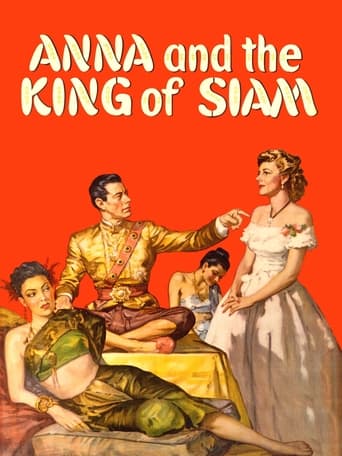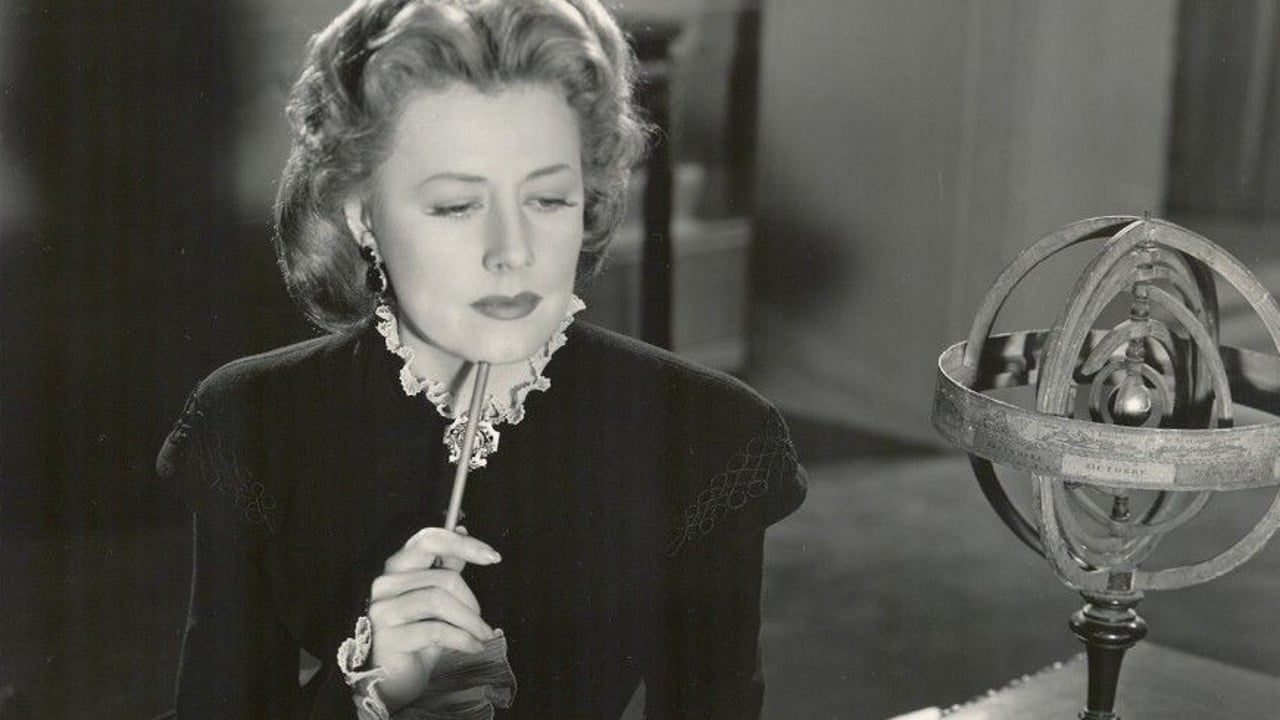vincentlynch-moonoi
I lived in Thailand for a couple of years and had visited many long summers before that, so this movie was of interest to me. I had read quite a bit about Anna Leonowens and her stint as teacher of King Mongkut's children, including Prince Chulalongkorn, who eventually became Thailand's greatest king. It is true that Anna was a teacher of the royal children, but the idea that she had any influence over the king is preposterous, and that is the conclusion of British historians. I should also point out that while the history of Anna is highly fictionalized, some of the history of Siam as represented here is somewhat accurate. Although many of the events pictured here are totally fictitious, at least this version of the story (as compared to the musical) seems somewhat more believable. There are some things I found a bit difficult to swallow -- like that the King would not know how to eat soup. The Thais have several wonderful soups, but perhaps they came to be after this period; I don't know. And, although I don't know what the habits were back then, Thais don't usually use chopsticks. The real problem here, from the point of view of the Thais, is that (particularly during the first half of the film), Anna is so condescending to the King. Think about it -- commoner versus King in any country.Knowing that in advance, I was interested in seeing how realistic the film was in other matters, and to my surprise, I have to give it fairly high marks. While I am not fluent in Thai, I speak a little, and I easily recognized many phrases that were spoken relatively accurately. The representations of exterior and interior architecture are reasonably realistic, with an occasional exception. The representation of the exteriors of the Grand Palace and Wat Phra Keow (the royal temple) are quite good. Art work is rather authentic...for example as related to the Thai Ramakien.Of course, King Mongkut would never have acted the way Rex Harrison acts here, although Mongkut was a rather unattractive man and something about Harrison's face does remind me of Mongkut. Early on there is a mention of "sin", a concept that is not really recognized in Thailand. It's too bad more of the Siamese in the film were not at least Asian.I was particularly interested in Anna's reaction to the first house she was offered. Even today if she saw how many poor Thais live, she would be appalled at the conditions. Clearly, considering the era, she was expecting far too much.In terms of acting, this film is extremely well done. Irene Dunne as Anna is superb. Yes, we know many of these things didn't happen, but Dunne makes them seem reasonable. Rex Harrison is excellent as the King. Again, we know the King wouldn't have behaved in those ways, but nevertheless, it's a very good performance, and I believe it was Harrison's first in an American film.Two actors that usually don't impress me were quite good here. Lee J. Cobb seems an odd choice to play the King's closest adviser, but he does it very well (and his spoken Thai was well-coached). And, Gale Sondergaard, who all too often played villainous women, is quite good here as one of King Mongkut's wives (and the mother of Prince Chulalongkorn).The latter portions of the film are interesting. One tragedy -- Anna's son dies. Which he did not in real life, and the company he founded can still be seen in Bangkok. And one last inaccuracy: King Mongkut died from malaria contracted when he went upcountry to view a total eclipse (astronomy was a passion); Prince Chulalongkorn also contracted malaria on the trip and nearly died himself...which is not at all depicted in the film. On the other hand, long after Anna left Siam, the real King Chulalongkorn traveled to Europe and really did visit Anna. So obviously there was a real teacher/student relationship of respect between the two.The film is so well done that I'd be tempted to give it a rare 8 rating, but due to the historical inadequacies, I'll give it a 7.I should mention the documentary about the real Anna Leonowens on the 20th Century Fox DVD of the film. It's too "pro" the story of Anna. A number of British historians have debunked much of Anna's story, but this documentary interviews her relatives...hardly unbiased. Other parts of it are realistic, particularly her fabrication of her early life. Take it with a grain of salt, but it's an interesting documentary.
jzappa
From the very start, we follow this story of civilization's collision of traditions from the point of view of a visiting English widow. From the very first scene, she is significantly stunned and incensed at the feudal mores of Siam when she disembarks there in 1862 to educate the king's clan of children, and mulishly declines to grovel before him and proceeds to spend several years in hot-cold teetering with him. This is actually a moving and ultimately very poignant story not because of its interest in the discord between the Imperialist Victorian ideology with the autocratic regime of Siam's King, though it does produce a handful of interesting, even funny scenes. It's because of the interpersonal attachments, deteriorations and healing of wounds by the extraordinarily moving triage of performances by Irene Dunne, Rex Harrison and Lee J. Cobb.Something we face when watching old movies is the reflection of ideas and attitudes of a time in our history not very far back at all. And some of these reflections are more socially or institutionally offensive than others, some not at all, some charming. Anna and the King of Siam is a matter of judging datedness against dramatic effectiveness, cultural attitudes against a screenplay based on personal accounts, mainly, beautiful performances against crude, exclusionary portrayals of Asians by actors in yellowface.Rex Harrison and Lee J. Cobb are given artificially slanted features and deep synthetic tans with make-up as the king of Siam and his deeply loyal and deferential Prime Minister. To modern eyes, this is immediately a difficult thing to accept. But the effectiveness of their characterizations I attribute as a testament to the performances of those two actors, in the face of how difficult it is to accept the mob-connected union boss on the Waterfront in a turban and no pants. And yet by the end, they have made us forget about them as white movie stars and genuinely begin to sympathize with them acutely as two men of cast-iron codes of values that nevertheless their humanity will always challenge.It's difficult to judge the movie's cultural attitudes against the true elements of the story without reaching outside of the movie itself, what's on the screen. In terms of the four sides of the screen while Anna and the King of Siam plays on it, I see a much more immediate issue with judging the movie's theatrical datedness against its dramatic effectiveness. And either way, it is indeed dramatically effective. This sort of subjective experience is what makes old movies important to preserve: They're going to keep on meaning different things to different people till the end of time.Now if I'll get to the point, the reason for this film's surprisingly intense poignancy is, as I say, moving characterizations by three great performers. One of them is in every single scene, and that's Irene Dunne, playing Anna the governess from England, who brings her son with her. One of the most palpable, touching things of all I've ever seen this amazing actress do is, after building a character whose cast-iron code of morality and decorum matches both said Siamese white men combined, revealing not merely a maternal instinct, but a maternal need. There comes a point in the story where her need for a son must be supplanted. She and the young boy in the scene are so tender together, only a lack of a pulse could prevent tears.Dunne, as sublimely classy as she ever was, holds her bonneted head high, displays sharpness with attractive reserve and ultimately releases sore, poignant tears. Her lady is on a plain with some that Greer Garson has played. The dignified and glorious woman, an ever-admired character in cinema and invariably a specific preference for admirers of Irene Dunne, is paid tribute in the customary luxurious way, but not without a raw bone of excruciating humanity and an enormously dramatic transformative arc.
Michael Davies
Since the making of Rogers & Hammerstien's The King and I ten years after this production, it has been difficult not to compare the two, especially as the later glossy cinema-scope musical version is virtually identical in all but the songs. The performance of Rex Harrison is actually rather good for a white man daubed with boot polish on his face, but of all the cast it is Lee J. Cobb (as the Prime Minister to the King) who stands out, so I am not sure why Gale Sondergaard (Tip Tem) was nominated for an Oscar rather than he. The production design and photography is excellent and fully deserves the Oscar awards. There is the usual Americanisation of a British story, thus devaluing its quality. Irene Dunn is an American actress playing an English rose, she tries hard, but she is not Deborah Kerr, and her "son" is totally American, no vestige of an English accent at all! What also spoils the believability of the story (which is loosely based upon exaggerated fact) is English porcelain clearly spelling Honour as Honor! Also, the King's obsession with the American Civil war and Abraham Lincoln is baffling when you consider that this story is set in a time when the divided American States were engrossed fighting amongst themselves, whilst Great Britain was the most powerful nation on earth and the British Empire at its height. The difference between a good film and an excellent film is in the detail, accuracy, respect to race and its believability this could have been an excellent film had such an English story not been Americanised quite so clumsily.
Mitch-38
Very enjoyable tale of Governess teaching Siam Ruler's children, then butting heads with the deified king over issues of culture and custom.
Irene Dunne and Rex Harrison star, and they work well together, from the frosty start, to the begrudging respect into the romantic overtones that develop. Their chemistry is the key to holding the film together - and it works. The sets are marvelous, and the supporting cast (Gale Sondergaard, Lee J. Cobb -I said Lee J. Cobb!] et al) are quite good.There's been much ado about comparing this movie with THE KING AND I. Margaret Langdon did not write a musical about her experiences there, she wrote a book. Rodgers and Hammerstein wrote the musical, based on the book. The two are certainly two different entities, and should be based on their singular merits and faults. It's about as silly as trying to link REBEL WITHOUT A CAUSE and GREASE!Yes, Anna's character is a tad dowdy, if not prudish; yet these are values from the 1860's, not Woodstock in the 1960's. It's really not fair to judge the characters motivations by our present standards or perceptions of morality. True, it would have been better to cast an Asian actor as Mongkut, yet these were not the realities of 1940's Hollywood; and we well know this.
Overall, we watch cinema to be entertained and escape, and ANNA AND THE KING OF SIAM provide more than ample reward for the viewer, in that regard.



 AD
AD





